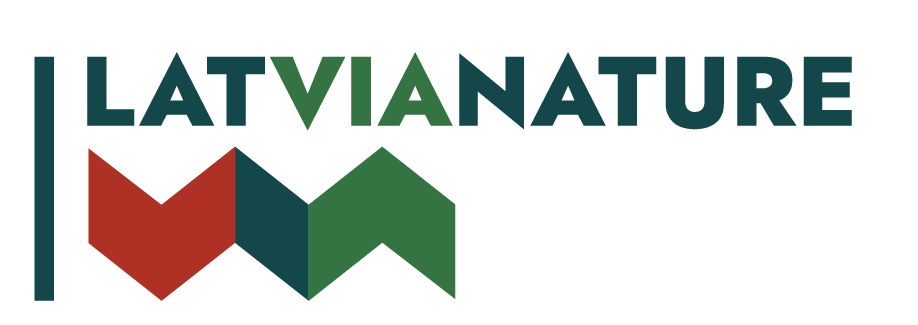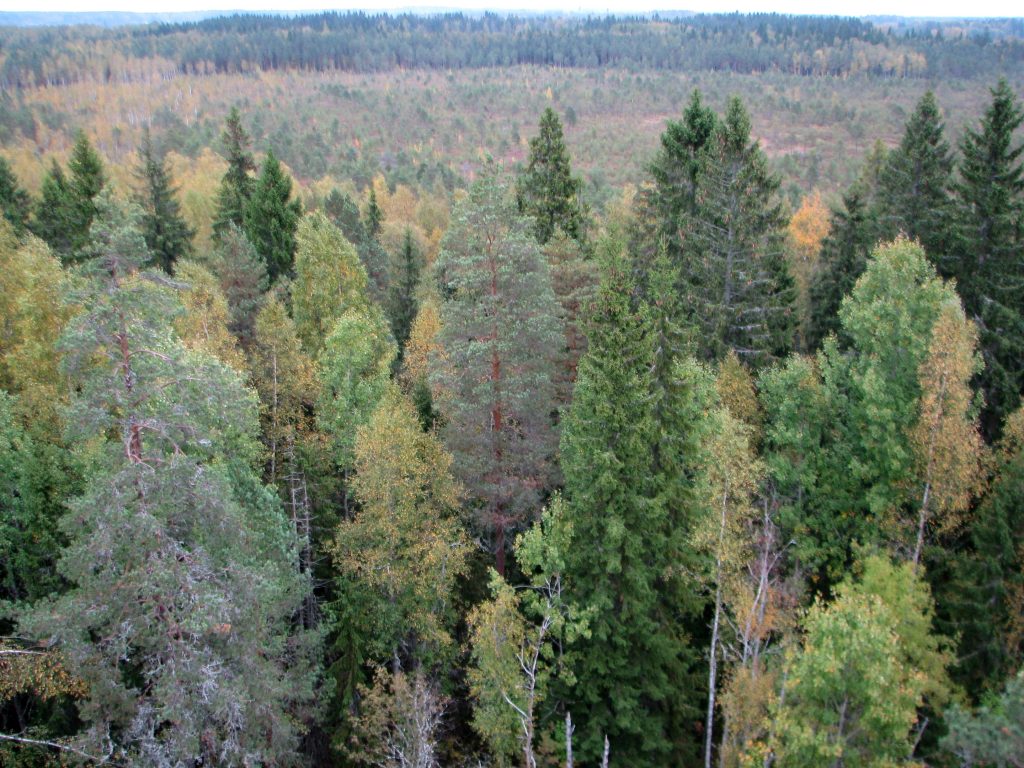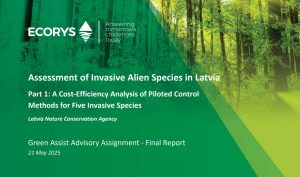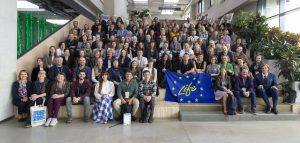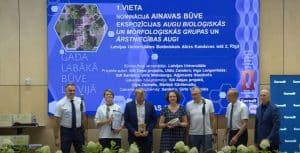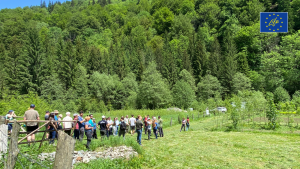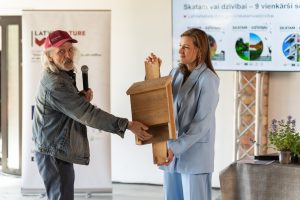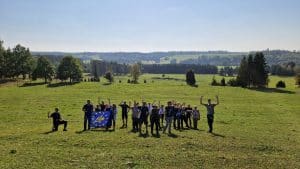Preserving natural values is an investment in the health, well-being of the population and the healthy existence of the whole economy – it is not possible without natural values and ecosystem services.
The seminar was opened by Artūrs Toms Plešs, Minister of Environmental Protection and Regional Development: “ This is our responsibility to take care of nature, and the goals of nature protection must be effectively integrated into the policies of various sectors so that they can contribute to Latvia’s development, but not at the expense of the depletion of natural values. I invite you to sit more often at the same table – the representatives of the organizations that take care of Latvia’s economic development and those that take care of nature protection.”
In his words, Andrejs Svilāns, Director General of Nature Protection, wished the project implementers “to find the best approaches to voluntary, mutually respectful, and understanding involvement of landowners in the common process of biodiversity conservation” and noted that nature education, raising public awareness, and participation is an essential part of improving nature protection.”
Ilona Mendziņa, Deputy Director of the Nature Protection Department of the MEPRD, explained the importance of the Integrated LatViaNature project in the context of nature protection policy and highlighted the tasks arising from both EU nature legislation and the Latvian National Development Plan for 2021-2027, as well as emphasized that achieving these goals is possible only by promoting the change of society’s behavior patterns and habits.
Ieva Saleniece (Nature Protection Agency), LIFE-IP LatViaNature Project Manager, provided insight into the tasks to be performed in the project and emphasized the role of the Integrated Project to strengthen cooperation with various sectoral institutions, organizations, stakeholders and with Latvian society as a whole.
The project will develop protection and management plans for 59 types of terrestrial and freshwater habitats of EU importance in order to set priorities and promote the restoration or maintenance of at least 70% of protected habitats in good condition. The development of compensatory and motivating mechanisms is planned to find the best approach to encourage the voluntary involvement of landowners in the overall biodiversity conservation process. In turn, to reduce the spread of invasive species, an effective, comprehensive management system will be developed, which includes early warning, testing and the demonstration of methods to eradicate invasive species. Furthermore, the effectiveness of the actions taken will be monitored. The natural data management system “Ozols” will be improved, making it more efficient and easier to use for both experts and landowners.
The challenge of the Integrated project will be to seek compromises and listen to the different views that have always existed when it comes to economic development and nature conservation, with a strong emphasis on the representation of stakeholders, different sectors and views.
Public participation in the project is essential and will offer a range of inputs, from private landowners and the general public to surveys, proposals for nature protection plans, discussions, experience exchanges, and trainings to demonstratenew management practices, focused on biodiversity conservation. This will focus on testing on private land and voluntary involvement of private landowners in habitat management. We invite you to follow the information on the project website https://latvianature.daba.gov.lv/en .
The online seminar was attended by 270 participants and it was broadcasted live on the Facebook platform.
The video recording of the seminar is available on the project website (the seminar was held in Latvian language), as well as on the Facebook page https://www.facebook.com/latvianature .
